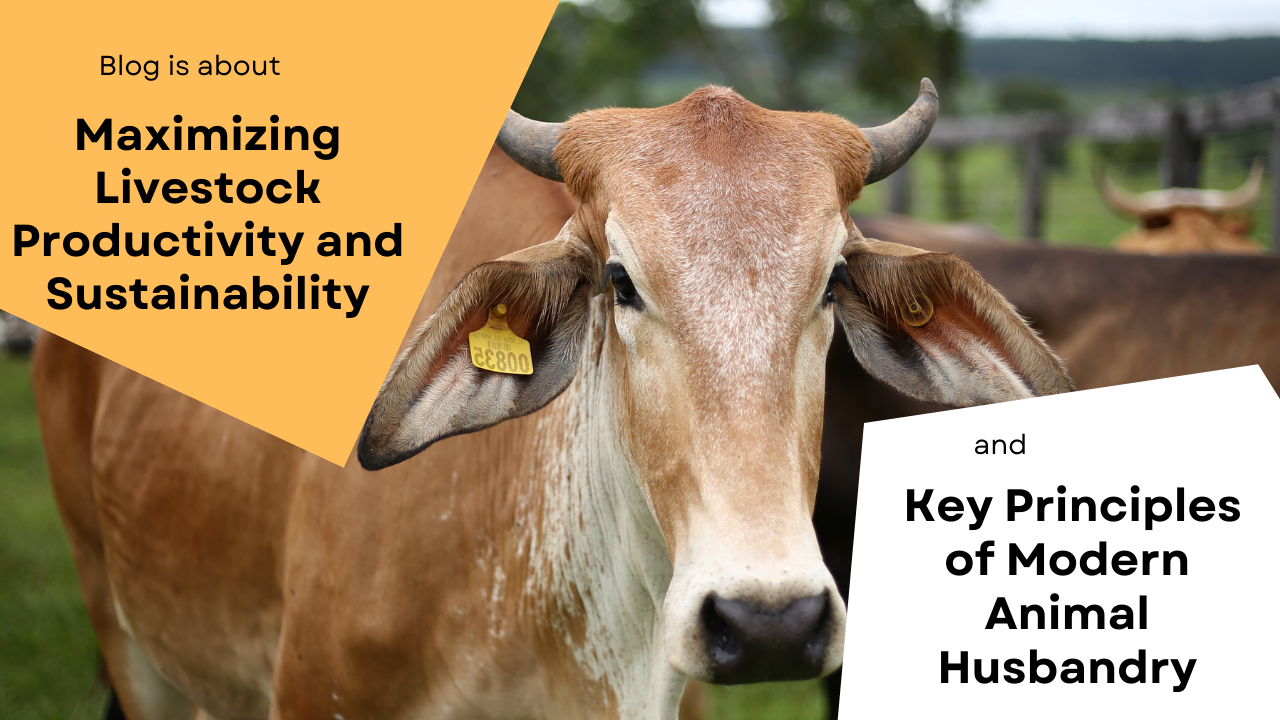
Maximizing Livestock Productivity and Sustainability ✅
📣 Maximizing Livestock Productivity and Sustainability: Key Principles of Modern Animal Husbandry 🐮
💡 Livestock Animal husbandry is the management process of growing and taking care of animals that are intended for human consumption, such as cows, pigs, chickens, and sheep. It is essential for both economic growth and global food security. However, animal husbandry procedures differ widely depending on the locale and animal species ⚙
🗓 In 2021, there were more than 1.7 billion cattle, 1.5 billion sheep and goats, 1 billion pigs, and 19 billion poultry, according to the Food and Agriculture Organization of the United Nations (FAO). Several products, including meat, milk, eggs, and wool, are produced from these animals 🧬
🌏 In affluent countries, large-scale intensive operations such as cutting-edge technology and management methods are widely used to increase livestock production. Meanwhile, in developing countries, traditional, small-scale farming practices, which should be less productive, are reliable and sustainable and are used by a large number of farmers 🧑 🌾👩 🌾
👉 The negative effects of animal husbandry techniques on the environment are a further concern. Land degradation, deforestation, and greenhouse gas emissions are all strongly-harmfully impacted by livestock farming raising. Implementing sustainable techniques, such as lowering the use of chemical inputs and fostering biodiversity, is essential to minimize the environmental impact of animal production husbandry 🐄
🟢 Despite these challenges, raising livestock production continues to be a key source of livelihood and food security for a large number of people around the world, especially in rural and developing countries. Additionally, certain cultures and traditions have a close relationship with a particular animal species, and the existence and reproduction of such species through conservation are valued as a significant aspect of civilization
✅ Last but not least, livestock animal husbandry is essential for both economic growth and global food security. It does, however, face several difficulties, including supplying the rising demand for items made from animals and lowering the environmental harm caused by animal production agriculture. By using sustainable and effective methods, we can make sure that livestock animal husbandry may continue to meet the needs and service the requirements of people all around the world while simultaneously safeguarding the environment 🌳
SDA professionals are constantly prepared to take on new difficulties and provide the most thoughtful answers.
Strategic Development Agency (SDA) NGO is an Armenian development organization founded in 2002 to contribute to the country’s socio-economic development.
Always providing Strategies For Development.